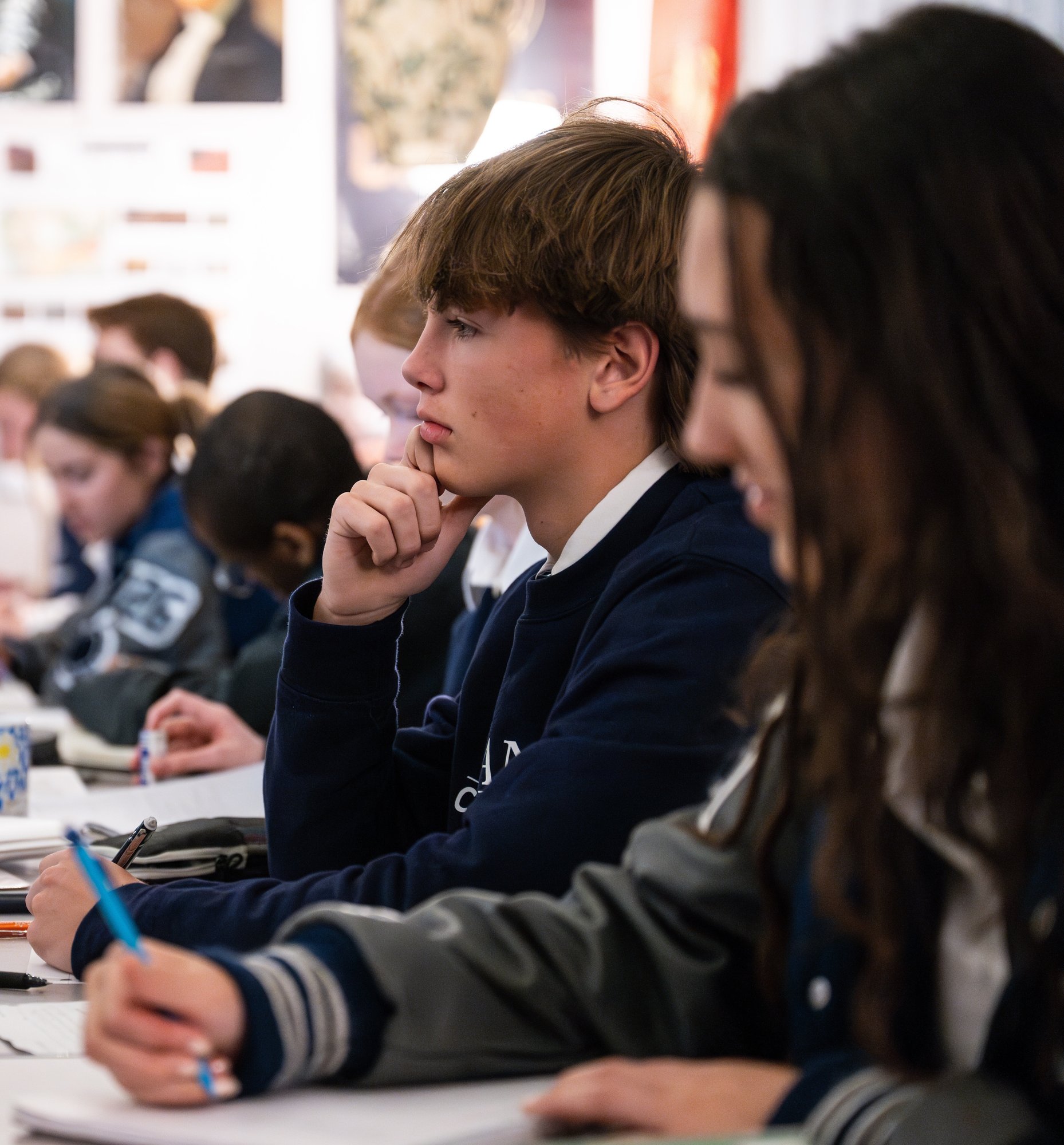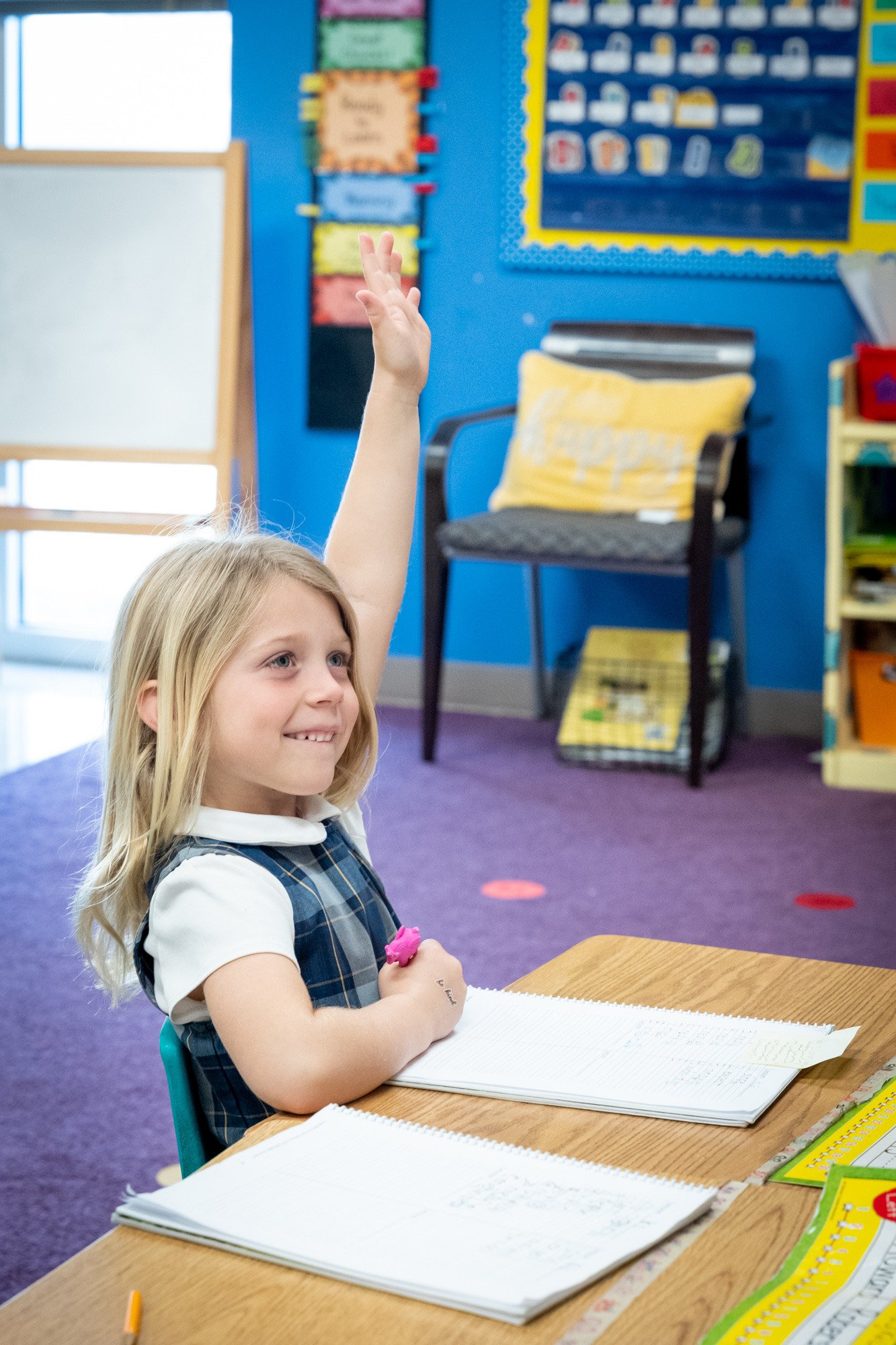What is Classical Education?
Truth, Goodness, and Beauty
A classical education teaches us to seek knowledge of the nature of things, especially the nature of man and of the universe as a whole. Human beings are that part of the universe who seek to know where we stand within it, and who wonder about its ultimate origins and character. We are also driven by a desire to know ourselves—to understand our nature and purpose in life.
To understand the world around us, we must go back to the sources – those of the good, the true, and the beautiful.
The surest guides for this quest are the great works of literature, art, ethics, and politics that mankind has produced, which prepare for and direct our pursuit of the human good, along with the serious study of mathematics and the natural sciences, which teach us about the principles and causes of the natural order. Together with the study of history, which teaches us to know ourselves by understanding our place in the unfolding of the human story, the serious pursuit of knowledge across all subjects equips us for fully human lives.
Thus, a classical education ultimately produces students whose hearts and minds are focused on goodness, truth, and beauty, and who are able to reflect these things into the world around them.

An American Classical Education
The ancients created a blueprint of a political, cultural, and moral order from which Western civilization has been built. In their own education, our Founding Fathers mastered that classical blueprint and from it, with important additions of their own, built our country. We shall never truly understand the monument unless we examine the blueprint and the subsequent building of the structure.
In studying the origins of the United States and its history, in all of its triumphs and tragedies, students acquire a mature love and respect for their country, one which appreciates our unprecedented founding, a product of reflection and choice, and measures the health of our republic in light of the standards outlined in our founding documents. From that knowledge, we become citizens capable of judging rightly what ought to be preserved and what changed, and in making this judgment we fulfill a central part of our human nature, becoming free citizens.
Classical education creates lifelong learners and prepares young people to live well in freedom and independence. Young graduates who are able to use their knowledge of the past to make good decisions in the present, and to plan wisely for the future, will be in high demand and prepared to flourish in whatever they choose to pursue. As classically-educated students graduate and enter their adult lives, our communities and ultimately our nation reap the rewards.

Features of Classical Education
- A curriculum that is content-rich, balanced, and inter-connected across the four core disciplines of math, science, literature, and history
- Explicit instruction in phonics and grammar
- An approach to instruction that acknowledges objective standards of correctness, logic, beauty, weightiness, and truth
- A well-educated and articulate faculty who care deeply for their students and teach through excellent questions
- A school culture of moral virtue, decorum, respect, discipline, and studiousness among both students and faculty
- A study of order in the natural world built fundamentally upon the four sciences of the quadrivium: arithmetic, geometry, astronomy, and music
- A belief that math and sciences are more than job preparation and give students a language for understanding the order of the universe
- A love of great books and a belief that stories and conversations about them change us as human beings
- An ultimate aim of preparing students for lives of human flourishing
